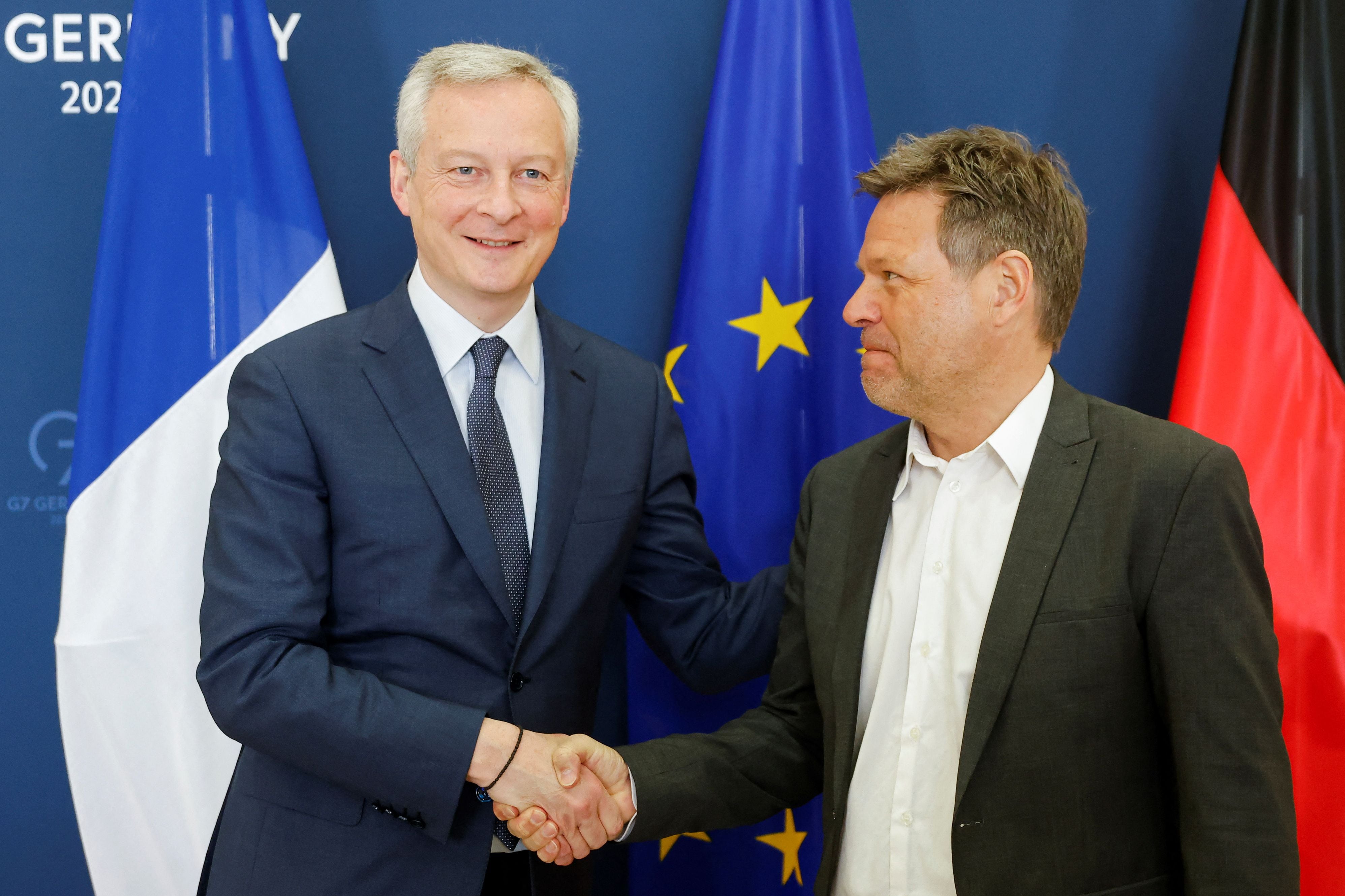
Germany and France on Thursday rejected Russia's demands that European countries pay for their gas in rubles, considering them an unacceptable breach of contracts, adding that the maneuver amounted to “blackmail”.
At a press conference, German Economy Minister Robert Habeck said he had not yet seen a new decree signed by Russian President Vladimir Putin that would require payment of gas in rubles, adding that Germany was prepared for all scenarios, including the cessation of Russian gas flows to Europe.
For his part, French Finance Minister Bruno Le Maire said that France and Germany rejected Russia's demand.
“There may be a situation in which tomorrow, in very particular circumstances, there will be no more Russian gas. It is up to us to prepare for these scenarios and we are preparing ourselves,” added Le Maire, after meeting Habeck in Berlin.

Russia's attempt to divide Western allies by demanding payment of gas in rubles has failed, said Habeck, adding that Western allies are determined not to be “blackmailed” by Russia.
Putin said on Thursday that he signed a decree whereby his country will no longer sell gas to “unfriendly countries” if they do not pay him in rubles.
“To buy Russian natural gas, they have to open ruble accounts in Russian banks. From these accounts, payments will be made for the gas delivered from tomorrow,” Putin said.
“If these payments are not made, we will consider it a default on the part of buyers, with all the consequences that this entails. Nobody sells us anything for free, and we're not going to do charity either, that is, existing contracts will be suspended,” he added.
On March 23, Putin announced that Russia would stop accepting payments in dollars or euros for the gas it sells to the European Union, in response to Western sanctions against Moscow for its offensive in Ukraine.
German Foreign Minister Olaf Scholz replied on Thursday that the countries of the European Union will continue to pay Russian gas in euros and dollars, as stipulated in the contracts.
“It is written in contracts that payments are made in euros and sometimes in dollars,” Scholz explained at a press conference with his Austrian counterpart, Karl Nehammer. “I made it clear to the Russian president that things will remain so,” he added, referring to Wednesday's telephone conversation with Putin.
(With information from Reuters and AFP)
KEEP READING:
Últimas Noticias
Debanhi Escobar: they secured the motel where she was found lifeless in a cistern

The oldest person in the world died at the age of 119

Macabre find in CDMX: they left a body bagged and tied in a taxi
The eagles of America will face Manchester City in a duel of legends. Here are the details

Why is it good to bring dogs out to know the world when they are puppies



